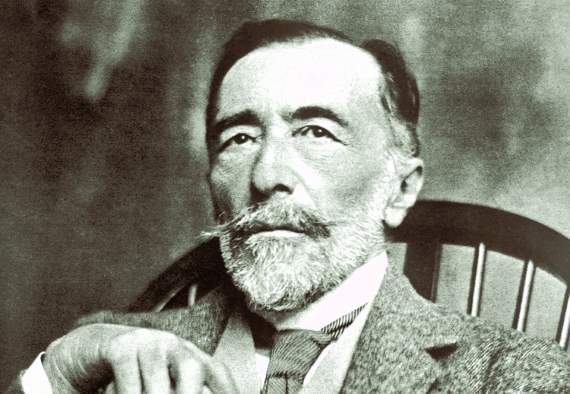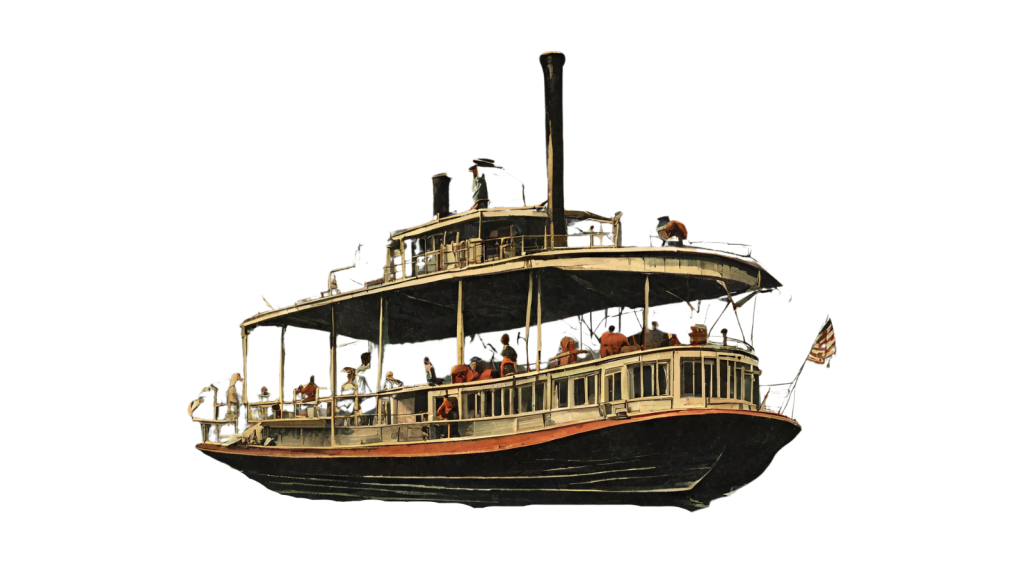Exploring the Depths of Joseph Conrad’s
Heart Of Darkness
At the dark and enigmatic heart of Joseph Conrad’s seminal novel “Heart of Darkness” lies the mysterious author himself. Conrad, born Józef Teodor Konrad Korzeniowski in 1857 to aristocratic Polish parents, had experienced darkness in his own life well before he ever put pen to paper. Through a chance encounter with opportunity on the open seas, the former Polish patriot found himself rising swiftly through the ranks to become captain of a steamship in 1890. It was during his decade sailing along the Congo River and farther afield across Eastern Europe and Southeast Asia that Conrad encountered the real-life horrors that would later inspire “Heart of Darkness.”
Now widely considered one of the greatest novellas ever written, “Heart of Darkness” transported readers deeper into the Belgian Congo than perhaps any travelogue of its time. Through the journey of narrator Charlie Marlow up the ominous Congo River, Conrad unveiled the ugly realities lurking beneath Europe’s so-called “civilizing mission” in Africa. But what drove Conrad to bear witness to such darkness, and then to recount it with such mastery many years later? Those who knew him noted Conrad’s enigmatic and solitary nature, as if he carried shadows from his past that knew no light. It’s almost as if through Marlow’s voyage, the elusive Conrad sought to exorcise private demons and shine light on the universal human capacity for evil that he understood all too well.

The Facts About Joseph Conrad

What Is Heart Of Darkness About?
The novella Heart of Darkness by Joseph Conrad follows an Englishman named Charles Marlow who recounts his journey into the Congo Free State in Africa while working for the Company. In the late 19th century, the Congo was under the brutal rule of King Leopold II of Belgium, who exploited the country for ivory and rubber. Marlow obtains a position as a ferryboat captain to travel deeper into the Congo River and rescue Kurtz, an ivory trader who is stationed in the inner station.
As Marlow travels into the interior of Africa, he encounters the horrors of Leopold’s regime. The African people are severely mistreated and oppressed under colonial rule. Marlow witnesses the Europeans’ greed-fueled and inhumane treatment of the local inhabitants. He sees the civilization has begun to crumble and humanity has reverted to a more primitive state. The jungle isolates the stations from the outside world, and the men lose touch with their identity living in such isolation amidst the wilderness.
Upon arriving at the inner station, Marlow finally meets the elusive Mr. Kurtz, who has gained a god-like status amongst the local natives. However, Marlow soon discovers just how far Kurtz has slipped into madness during his time in Africa, cut off from the restraints of European society. As Marlow returns to tell Kurtz’s story back in Europe, it becomes a critique of Western colonialism and a sobering glimpse into the darkness that lurks within humanity when civilizing restraints are removed.
Sanity & Insanity In The Jungle
Hunters for gold or pursuers of fame, they all had gone out on that stream, bearing the sword, and often the torch, messengers of the might within the land, bearers of a spark from the sacred fire. What greatness had not floated on the ebb of that river into the mystery of an unknown earth! . . . The dreams of men, the seed of commonwealths, the germs of empires.
Joseph Conrad’s novella Heart of Darkness explores the thin line between sanity and insanity, and how that line can become blurred when one is faced with the darkness that lurks in the deepest recesses of the human psyche. The story is told through the eyes of Marlow, a sailor who recounts his journey into the Congo Free State, where he served as a riverboat captain and met the infamous Kurtz. What Marlow discovers in the heart of the African jungle is enough to challenge even the strongest sense of reality and reason.
Going up that river was like traveling back to the earliest beginnings of the world, when vegetation rioted on the earth and the big trees were kings. An empty stream, a great silence, an impenetrable forest. The air was warm, thick, heavy, sluggish. There was no joy in the brilliance of sunshine. The long stretches of the waterway ran on, deserted, into the gloom of overshadowed distances.
The oppressive jungle setting seems to permeate the minds of those who spend too much time isolated within its dense foliage. Marlow notes that “the very origin of the formation of the company is enough to make you arch your eyebrows.” The ruthless exploitation of the local population for ivory has a clearly unhinging effect. As Marlow journeys further into the wilderness, he notes the growing signs of madness all around him. The pilgrims who operate the stations are “worn out,” and one has “an unwholesome, meditative, hatchet-face.” By the time Marlow meets Kurtz, it is clear this once-reasonable man has been driven to the brink of insanity by his lust for power and wealth in these unforgiving lands.
I think the knowledge came to him at last — only at the very last. But the wilderness had found him out early, and had taken on him a terrible vengeance for the fantastic invasion. I think it had whispered to him things about himself which he did not know, things of which he had no conception till he took counsel with this great solitude — and the whisper had proved irresistibly fascinating.
Kurtz has set himself up as a god among the local tribespeople, who see him as a being with some kind of supernatural powers. But to Marlow, Kurtz just seems a man who was able “to be a savage and a poet mad or not.” His words, “The horror! The horror!” seem to sum up the madness and darkness he has witnessed in himself and others around him. By pushing his mind and body to the extreme in his exploits, Kurtz has lost touch with his humanity. He seems to represent the idea that absolute power or freedom from the constraints of civilization can drive someone to the point of no return, where the lines of reality are blurred beyond recognition. Marlow, too, is clearly disturbed by what he finds, and by the end of his journey, like Kurtz, he finds it difficult to determine for sure “what was within and what without me.” The jungle, it seems, can easily drive even the strongest of men to question their own sanity.
Why Is Heart Of Darkness Seen As Controversial?
Both Today & At The Time Of Publication
One of the main reasons Heart of Darkness is seen as controversial today is due to its depiction of Africa and Africans. When the novella was published, European colonialism in Africa was at its height. Many critics argue that Conrad’s portrayal of the African continent and its people as dark, mysterious, and barbaric helped bolster racist stereotypes that were used to justify imperialism. There are numerous passages where Africans are described as savages or described in dehumanizing ways. This has led many scholars to label the novella as racist and imperialist propaganda. However, others argue that Conrad was actually providing a subtle critique of colonialism and showing the dark side of the imperialist project that many of his contemporaries chose to ignore.
A second major reason for controversy is the novella’s exploration of the darker aspects of human nature. Marlow’s journey into the Congo exposes the capacity for savagery, violence, and moral corruption that exists within all people, including the so-called “civilized” Europeans. The novella suggests that beneath our thin veneer of culture and society, human beings have a “heart of darkness” – we are all capable of committing atrocious acts given the right circumstances. Some readers find this profoundly unsettling because it challenges common assumptions about human progress and cultural superiority. It acknowledges our shared potential for evil, something many would rather deny or ignore. This philosophical bleakness regarding human nature has led some to label Heart of Darkness as a misanthropic or even misguided work.
Download Heart Of Darkness For Free To Read Now

Heart of Darkness by Joseph Conrad is a novella that everyone should read at least once. Though the story was published over a century ago in 1899, its exploration of complex themes like colonialism, racism, and the dark depths of human nature are still deeply relevant today. In a time when these sorts of issues are still all too present in our world, Heart of Darkness provides an unflinching look at the shadowy side of human morality and progress. Both harrowing and profoundly thought-provoking, the book sticks with you long after you’ve finished it by challenging common assumptions and stirring up difficult questions about society, psychology, and humanity’s capacity for good and evil. Even if it makes you deeply uncomfortable at times, Heart of Darkness is an incredibly powerful and important work that everyone interested in these kinds of thought-provoking stories should experience.
